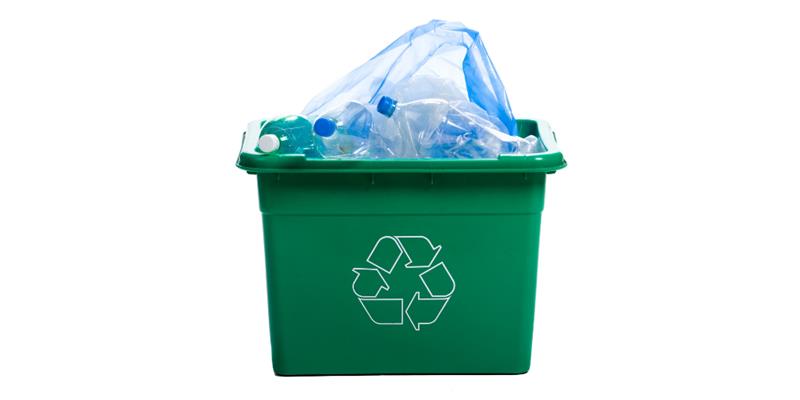Wales is already the best in the UK for domestic recycling and third best in the world. The recycling rate of waste material collected by local authorities is currently at just over 65%.
What is changing?
The following materials will need to be separated for collection, and collected separately:
- Food
- Paper and card
- Glass
- Metal, plastic and cartons
- Unsold textiles
- Unsold small waste electrical and electronic equipment (sWEEE)
“The new requirements come into force on 6 April 2024 so it is vitally important that farmers familiarise themselves with the changes in the coming weeks.”
NFU Cymru Rural Affairs Board Chair, Hedd Pugh
Putting waste into a single bin will not be allowed if any of these materials are in there.
Each group of materials must be kept separate from each other. For example, glass must be collected on its own, but metal, plastic and cartons can be mixed together in the same container. There will also be a ban on:
- Sending food waste to sewer (any amount)
- Separately collected waste going to incineration and landfill
- All wood waste going to landfill
The law to separate and recycle food waste applies to any premises that produce over 5kg of food waste per week.
When is it changing?
The new requirements come into force on 6 April 2024
Enforcing authority
The law will be enforced by Natural Resources Wales (NRW). They are responsible for making sure that materials are being separated and collected correctly, and that the ban on recycling going to incineration and landfill is being followed.
NRW may visit or contact businesses to check that they are complying with the new requirements. They may ask for information and evidence relating to waste collection arrangements and Welsh Government state it is advisable for relevant records to be kept to help demonstrate compliance to the regulator.
Local authorities are responsible for making sure the ban on food waste going to sewer is followed.
Commercial vs domestic waste
Commercial and other wastes are not the same as domestic waste
Commercial organisations, no matter how small, are required by law to pay for the collection and disposal of their waste and recycling by a registered waste carrier, as well as keeping receipts and waste transfer notes for a minimum of two years
There is background guidance of the requirements for different types of waste in the NFU Cymru business guide.
Where to get more information
Welsh Government has published a Code of Practice on the Separate Collection of Waste Materials for Recycling which has more detail about how to comply with the law to separate waste and keep it separate for recycling.
The law requires anyone who produces or deals with waste to keep it safe, make sure it is dealt with responsibly and only given to businesses authorised to take it. This is called the ‘Duty of Care.’ More information on the Duty of Care is provided by Natural Resources Wales on Waste Duty of Care for Organisations.
